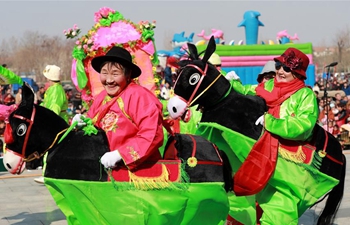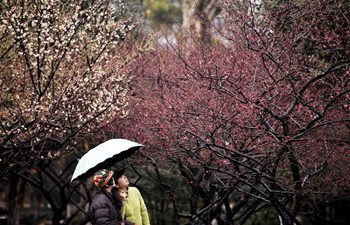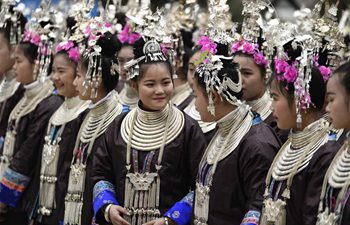CHICAGO, Feb. 22 (Xinhua) -- The circadian clock neurons of fruit flies use thermoreceptors to constantly monitor the temperature of the environment, and that even mild changes in temperature have physiological effects on clock neurons that control sleep timing, researchers at the University of Michigan (UM) found.
The study was published in the latest issue of Nature magazine.
To study how the fruit fly neurons respond to external temperature, UM researchers developed an optical imaging and temperature control system that enabled them to take a snapshot of neural activity in the circadian clock network of fruit flies when the flies were exposed to heat or cold stimulus.
"It looks like clock neurons are able to get the temperature information from external thermoreceptors, and that information is being used to time sleep in the fly in a way that's fundamentally the same as it is in humans," said Orie Shafer, principal investigator of the study.
"As temperature drops, these neurons that promote sleep become excited, and that really entrains the sleep activity cycle to external temperature cycles. It's precisely what happens to sleep in mammals when internal temperature drops," said Shafer.
The discovery is expected to help researchers understand how neurons are using environmental temperature in addition to light to regulate sleep timing in mammals, including humans.
Circadian clocks are biochemical mechanisms that allow living things to organize their sleep and waking across the 24-hour cycle of a day.
"Decades of work from recent Nobel Prize winners and many other labs have actually worked out the details of how light is able to adjust the clock, but the details of how temperature was able to adjust the circadian clock were not well understood," said Swathi Yadlapalli, first author of the study and a postdoctoral researcher in the UM Department of Molecular, Cellular and Developmental Biology.
"Going forward, we can ask questions of how these two stimuli are processed and integrated into the clock system, and how this has effects on our sleep behavior and other physiological processes," said Yadlapalli.

















